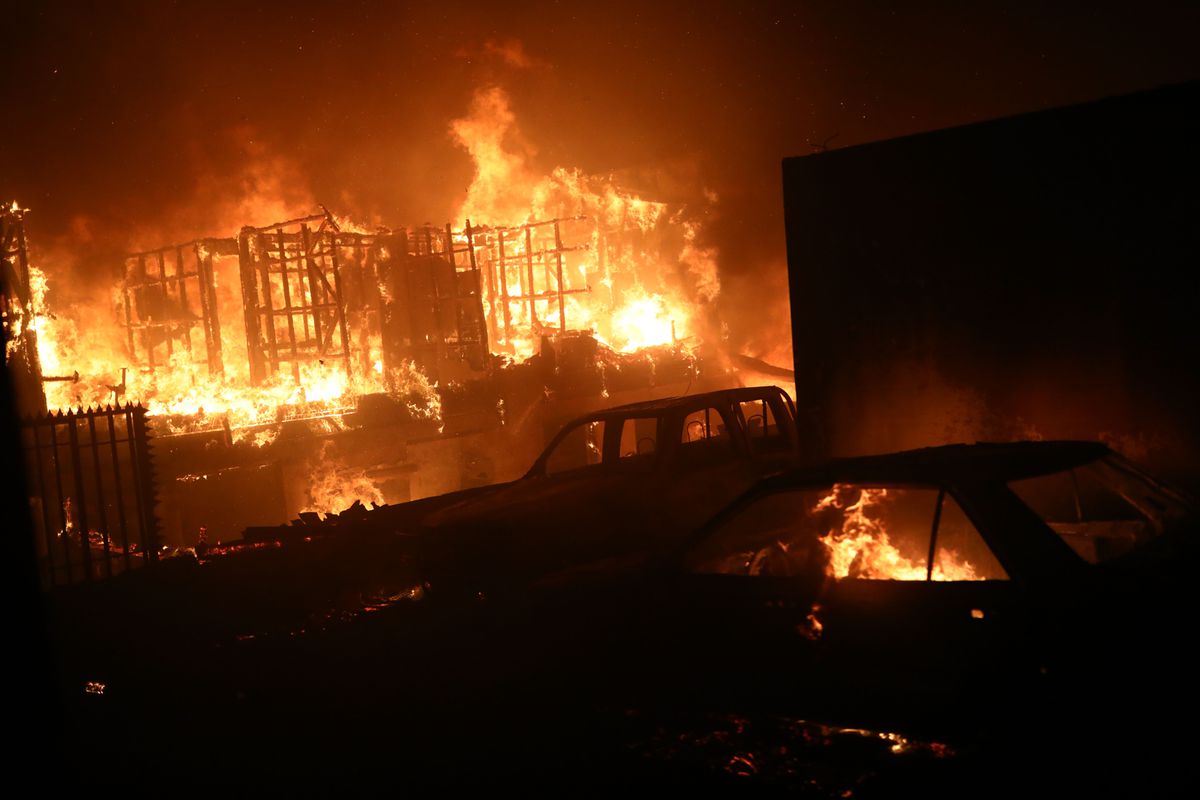Global society
all articles
It started with a price increase of 30 pesos for subway tickets in Santiago, now more than one million people are demonstrating on Chile's streets. They demand not only the return of the equivalent of four cents increase, but also higher pensions, higher minimum wages and a fairer education system. This is unusual for a country that has long been regarded as an anchor of stability in the region.
But the protests are justified: According to an OECD study, in 2018 three-quarters of Chileans were convinced that they were treated unfairly by the state. Less than a quarter of the population complained about not having good and affordable access to the health system. Eighty percent of Chileans believed that if they lost their job, the state would not provide enough for them.
In protests in the past, it was mostly students who demanded affordable education, such as in the demonstrations in 2011. Even now, it was first students who took to the streets, even though they are not directly affected by the ticket price increases.
580 injured demonstrators
However, the protest quickly spread to various social groups (minutes of demonstrators read here) - and the government of President Sebastián Piñera reacted with severity. On social media videos, there are police officers who are trivializing demonstrators. More than 3000 people were arrested, at least 20 lost their lives, almost 600 were injured, 245 of them by firearms. Tanks rolled through the streets of the capital - for the first time since the end of the dictatorship of Augusto Pinochet.
Recently, Piñera announced a turnaround: He had asked all ministers of his government to resign, he said on Saturday. He did not respond to claims for repayment against himself. He also promised increases in the minimum wage and pensions. The increase in ticket prices has been suspended.
Many Chileans consider these concessions unreliable, says Eduardo Alejandro Ferreira Olavarría, a primary school teacher from the southern Chilean port of Puerto Montt. Although the economic situation in Chile has not deteriorated, inequality has increased.
Here he talks about the precarious situation of his students, a vicious circle of poverty and what President Piñera has to change now:
"As a teacher I deserve very well in comparison." "Former President Michelle Bachelet has increased the salary for teachers by a third, and now I get about one million Chilean pesos a month (around $ 1,200), more than three times the minimum wage of 301,000 pesos (around 374 euros), so that I can cover all my expenses and even fulfill my wishes - I have traveled through Chile and through Europe.
Nevertheless, the National Association of Teachers called for a strike - and my entire college is involved. But we do not demonstrate for ourselves, but want to support weaker groups. The working class has very low incomes, pensions amount to a third of the minimum wage - politicians have millions of pesos available. It is this inequality that upsets people here.
Personally, I'm very worried about my students. The school I teach is outside the city. There are 20 children in my class, all between eleven and 13 years old. Many live in very poor conditions. There are families with five children, who have to cope with about 350,000 pesos (about 434 euros) a month.
The parents of my students are mostly fishermen, Puerto Montt is a port area. But the government has privatized the coastal zones, so the small fishermen are allowed to get out at most 40 kilos of fish a month. By comparison, the big industrial vessels fish two thousand tons a month, but the rules do not apply to them. This is a tragedy especially for families in the villages, they can not find new jobs so quickly.
more on the subject
But you have to differentiate: In the past ten years, life on average has not gotten worse in Chile. We have a growing economy and stability. But the lower classes do not get much of it. There is no equal opportunity: If your father was poor, you will probably be poor too.
It's a miracle that I've ever studied. I was the first in my family, my father worked as a truck driver, my mother was a housewife. My grandparents do not even have a secondary school diploma. Often there was not enough money, I had to take a loan for my studies.
For my bachelor and master I have paid a total of nearly 13 million pesos (about 16,000 euros), and I pay this debt back, with 50,000 pesos a month (about 60 euros). The meanness is that while the state gives you a student loan, it demands high interest rates. At the same time you can not return the money at once, you have to pay back at least 20 years, which means higher income for the banks. For example, if you borrow five million pesos, you'll pay back about eleven million in the end.
In video: At least ten killed in protests in Chile
ALBERTO PENA / EPA-EFE / REX
And even as a teacher, I'm worried about my future: A few days ago, I talked to colleagues who are about to retire. All of them are currently earning a salary similar to mine, but their pension is only 150,000 pesos (around 186 euros). For years, you have lived with almost ten times as much money as you get as a retiree. I am still young, but if nothing changes in the next few years, it will probably come to me.
That the protest broke out right now, I think by accident. One did not want to pay the subway ticket, then another. And when people heard that some complained, they took to the streets for very different purposes.
But the way the Chileans defend themselves against the police is new and gives the movement a special strength. I think the crackdown by the security forces has torn up old wounds. People remember the 1973 military coup and the subsequent years of Pinochet's dictatorship.
I am convinced that with this protest we could do something for the better. But Piñera has to go along with that: in my opinion, it must, above all, drastically increase pensions and the minimum wage.
As soon as the strike is over, I will talk to my students even more than ever about social inequality. Civics is a subject that has gained importance in Chile only in recent years. Now is the time to talk about topics that affect the students and their families. After all, it is they who determine whether Chile will become fairer in the future. "
This article is part of the project Global Society, for which our reporters report from four continents. The project is long-term and supported by the Bill & Melinda Gates Foundation.
What is the project Global Society?
Under the title Global Society, reporters from Asia, Africa, Latin America and Europe will be reporting on injustices in a globalized world, socio-political challenges and sustainable development. The reportages, analyzes, photo galleries, videos and podcasts appear in the Politics Department of SPIEGEL. The project is long-term and will be supported over three years by the Bill & Melinda Gates Foundation (BMGF).
Are the journalistic contents independent of the foundation?
Yes. The editorial content is created without the influence of the Gates Foundation.
Do other media have similar projects?
Yes. Major European media such as "The Guardian" and "El País" have created similar sections on their news pages with "Global Development" or "Planeta Futuro" with the support of the Gates Foundation.
Was there already similar projects at SPIEGEL ONLINE?
SPIEGEL ONLINE has already implemented two projects in recent years with the European Journalism Center (EJC) and the support of the Bill & Melinda Gates Foundation: The "Expedition The Day After tomorrow" on Global Sustainability Goals and the journalistic refugee project "The New Arrivals" Several award-winning multimedia reports on the topics of migration and escape have emerged.
Where can I find all the publications on the Global Society?
The pieces can be found at SPIEGEL ONLINE on the topic page Global Society.















